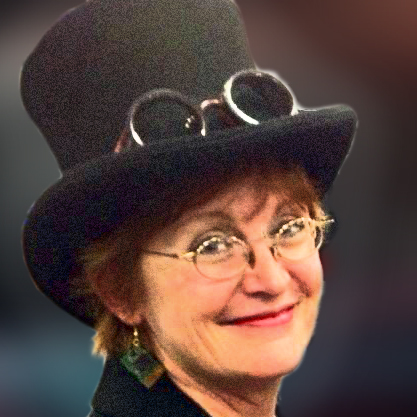Guest Contribution by DB Cooper
For our collaboration month, some tips from a voice actor…on working with voice actors.
Actors are, for the most part, eager to please.
And they know that games need to be recorded fast— there’s so much script and so little time.
Actors are keen to help get the work done quickly, and often approach lines of script as elements that need to be rendered whole. However, scripts sound stilted when lines are read as LINES. Even an excellent actor may sound odd with lines that are spoken clearly all the way through, because the only place we normally find fluency in all exchanges is a play.
Real people tend to speak in phrases. If you don’t want your game script to sound like a performance, allow mistakes & corrections and pauses— as well as fluency.
Directors want authenticity, reality, honesty. Spend a little time at the beginning of a session to get into a groove of success.Take a few minutes to help your actors get the feel for a script by assuring them there is time:
To find authentic pauses:
“Great. Now we look incompetent.”
…becomes…
“Great. <sigh> Now (inhales thru nose) we look incompetent.”
To self-interrupt:
“Sorry guys, I know you’re just coming off a case but I’m afraid we’re going to have to make a detour.”
…becomes…
“Sorry guys, we’ve got to—— look, <exhale> I know you’re just coming off a case but I’m afraid we’re going to have to make a detour.”
To say “uh. . .” now and then, like real people do.
“Jesus— he looked <uh> pretty mad.”
During the actual session:
Interrupting an actor may seem like a time-saver, but what it really does is alarm the actor and undermine his confidence which can lose you a strong performance, or it will irritate the actor and make him less likely to be receptive.
When figuring out how a character should sound at the beginning of a session— single sentence lines should be used so there is an easy give-and-take between the director and actor, and if there needs to be an adjustment partway through the script— make it at the end of a line. Be patient for a few seconds! There aren’t a lot of full-scale “paragraphs” in game dialogue.
When you allow time for your actors to break out of the “good-dog” mode of getting a job done, and relax and settle into their place as “actors”, you give them the freedom to breathe life into the characters, you have a richer recording experience, and everyone ends up with great audio.
DB Cooper: voice actor/dialogue consultant/voice caster/director. She has more slashes between stuff than Jack the Ripper. With a pedigree in musical and dramatic theater, DB has been acting and directing for more than 28 years. Game work includes voice characterizations for Bioshock 2, Syndicate, and Firefall; dialogue and character voice consulting for 38 Studios’ Copernicus project; and voice casting and direction for The Ville by Zynga.
DB is a staff announcer for CBS Radio and a voice coach with students worldwide.

Terrific piece, Deirdre!
Nothing makes performance dialogue more convincing than all the little characteristics and nuances that make everyday speech imperfect.
Ms Cooper – please contact me regarding this article. Very interesting and I would like to speak to you about using it or something similar.
Great tips DB. Thank you
Nicola